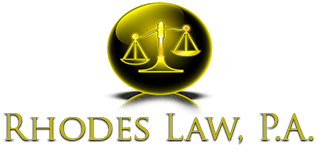Guardianship Attorney: Understanding the Importance of Advance Directives and Avoiding Guardianship

Understanding the Importance of Advance Directives and Avoiding Guardianship
As we age or face a medical crisis, it's important to plan for our future healthcare needs. This is where advance directives come into play. An advance directive is a legal document that outlines your wishes regarding medical care if you become incapacitated or unable to make decisions for yourself. Without an advance directive, family members may be forced to seek guardianship over you. Guardianship is a legal process where someone else (usually a family member) becomes responsible for making decisions on behalf of an incapacitated person. This can be avoided by setting up an advance directive with the help of a guardianship attorney in Melbourne, FL.
What are Advance Directives and How Do They Work?
Advance directives come in different forms but generally include two main documents:
- A living will
- A durable power of attorney
A living will specifies what medical treatment you want or don't want if you're terminally ill or permanently unconscious. It covers issues like resuscitation, feeding tubes, pain management, etc.
A durable power of attorney authorizes someone else (known as your agent) to make healthcare decisions on your behalf when you cannot do so yourself. This includes things like choosing doctors, approving treatments/surgeries, etc. These documents only take effect when certain conditions are met (e.g., incapacity). You can always change them later if your preferences change.
What Is Guardianship and How Can It Be Avoided?
Guardianships are usually sought by family members who believe their loved one cannot make sound decisions about their own health/finances due to physical/mental limitations. The court appoints a guardian who then has the authority to make decisions on behalf of the incapacitated person. Guardianships can be costly, time-consuming, and emotionally draining. They also strip away your autonomy and dignity. That's why it's important to avoid them if possible by setting up advance directives ahead of time.
Why It Is Important to Have a Guardianship Attorney
Setting up an advance directive is not something you want to do alone or without legal guidance. A guardianship attorney can help you:
- Understand the legal requirements for advance directives
- Choose the right type of documents that reflect your wishes
- Ensure that your documents comply with Florida law
- Appoint a trusted agent who will act according to your preferences
- Update your documents as needed
An experienced guardianship attorney can also advise you on other related matters such as estate planning, probate avoidance, and asset protection.
How To Find and Work With a Guardianship Attorney in Melbourne, FL To Set Up Advance Directives And Avoid Guardianship
Finding a qualified guardianship attorney in Melbourne, FL is easy if you know where to look. Ruth C. Rhodes, at Rhodes Law, P.A. is highly respected by other attorneys practicing in the guardianship arena, as well as the judges handling guardianship cases. Guardianship proceedings can be very overwhelming, and requires assistance from an attorney well-versed in Florida guardianship law. If you need help in setting up an advance directive to ensure that your healthcare wishes are respected contact Rhodes Law, P.A. and let them help you avoid costly guardianships and achieve peace of mind knowing that you are prepared. Call us today at (321) 610-4542 and set up your consultation today!
You might also like




